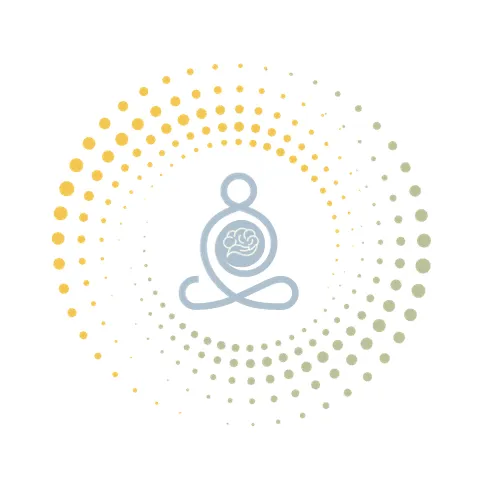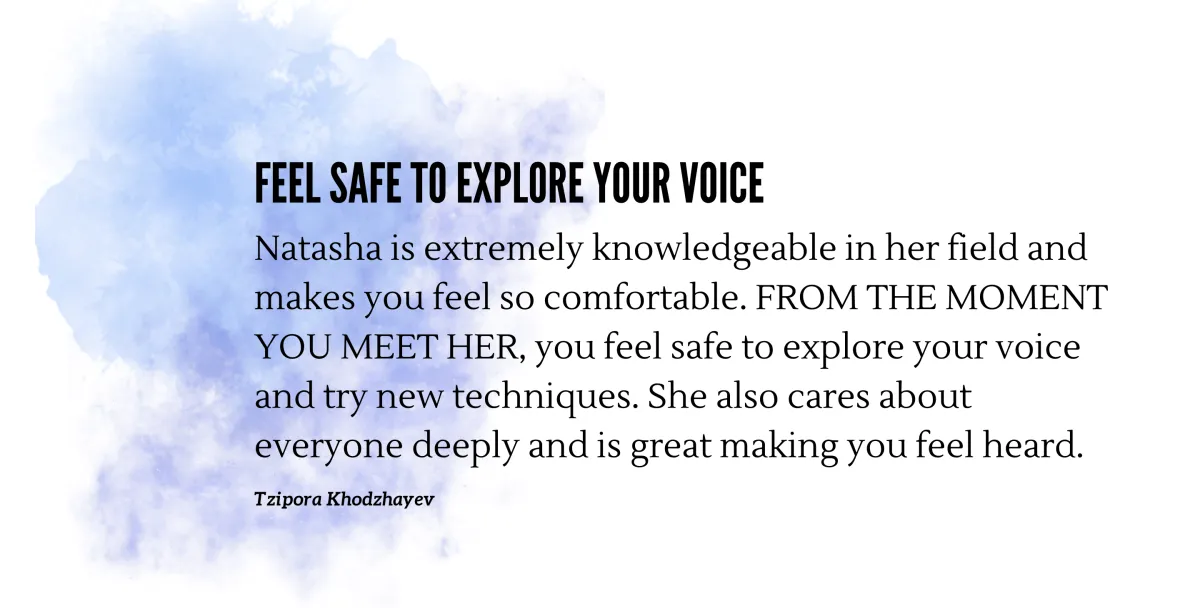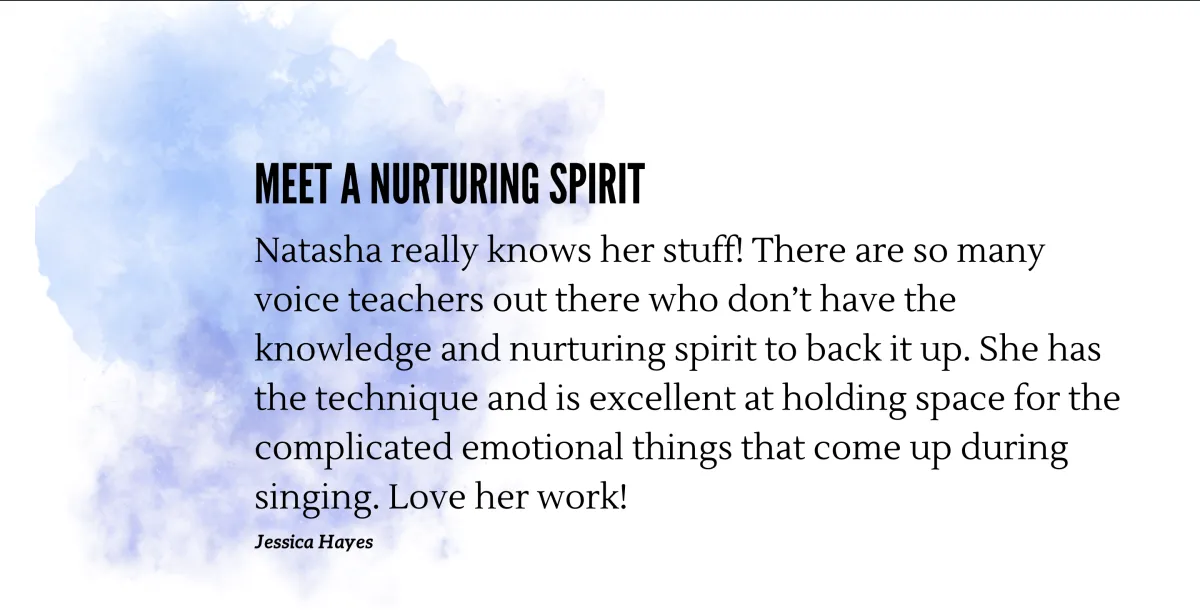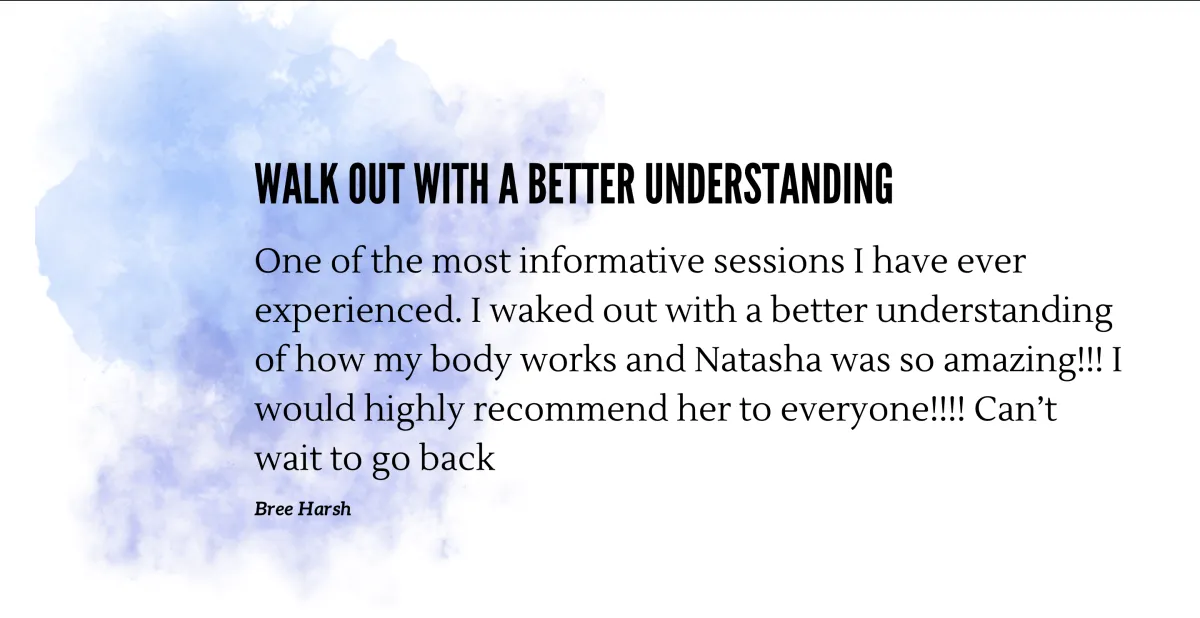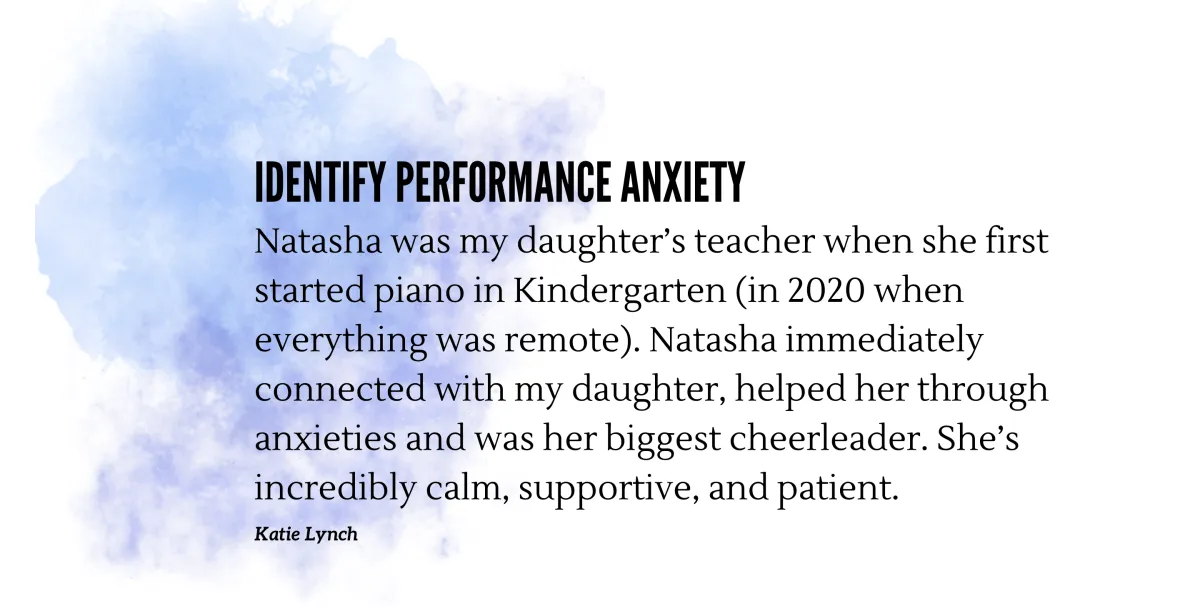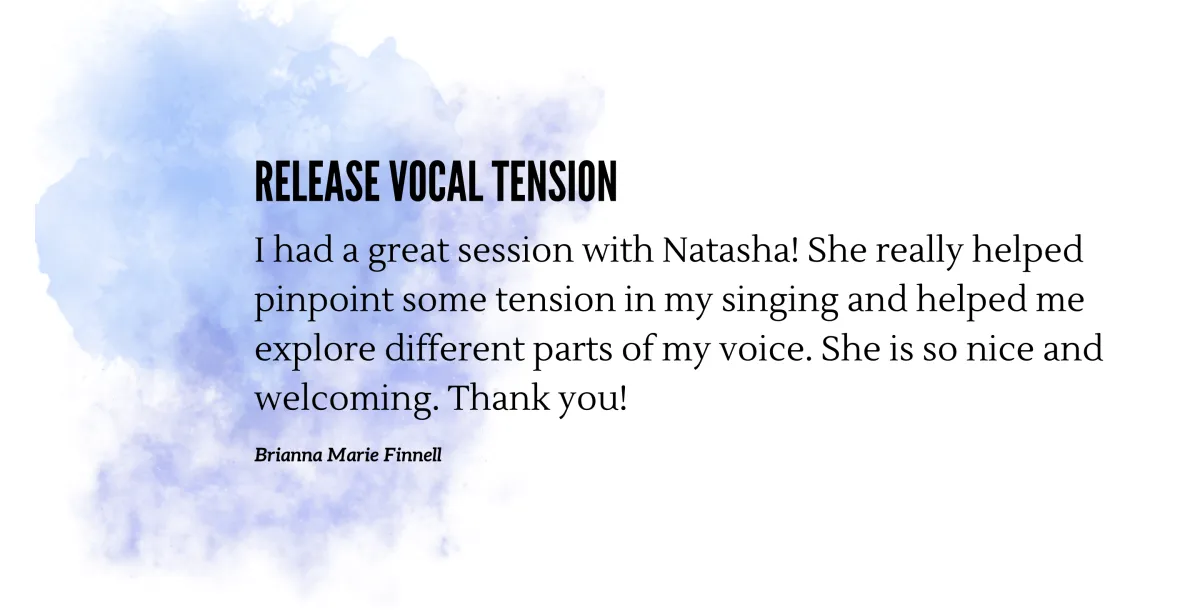UP COMING EVENTS &
Latest Appearances
TEDx Building Bridges
October 5, 2025
Fullerton, California
Your Authentic Voice is embedded -
deep within your nervous systemPerformance Anxiety isn't just mental -
it's physiologicalUtilize your voice not just to perform -
but to reconnect, self-regulate, and reclaim the deepest parts of you in need of healing
Let's talk about your nervous system.
Learn from Trauma Informed Voice Specialist, Natasha Valdes, as she aims to bridge the gap between voice science and other alternative healing modalities.
Discover the potential of your voice to address performance anxiety, alleviate chronic stress, balance your nervous system, and promote overall well being.
Work with Embodied Vocal Wellness
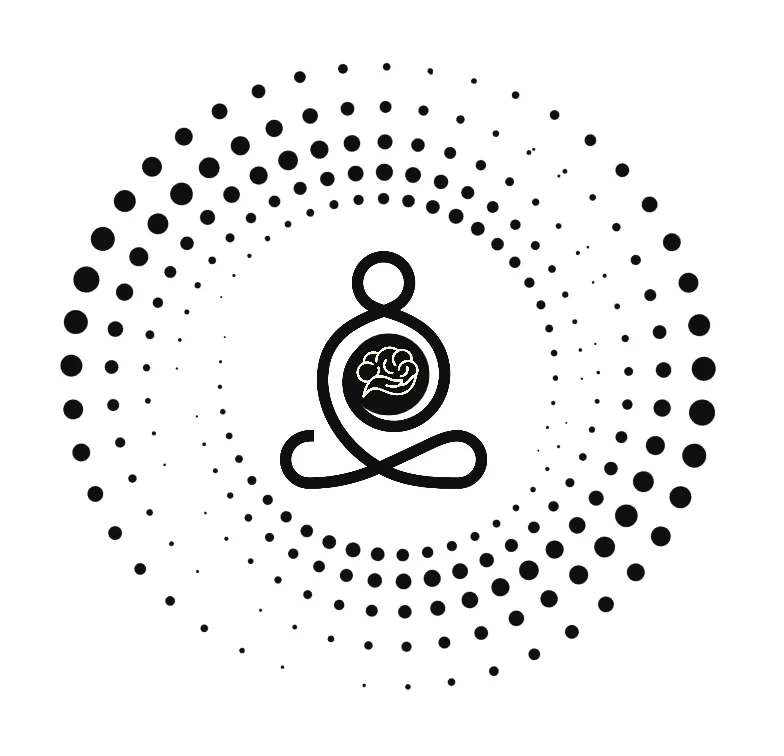

2025, let's calm down together
Be Kind To Your Nervous System
All it takes is one brave step to begin rewiring your nervous system. Step into Embodied Vocal Wellness — a science-rooted, heart-led approach to helping performers regulate their bodies, free their voices, and access a deeper state of inner peace you can come home to again and again.

FAQ
Why Embodied Vocal Wellness?
We are an integrated voice and nervous system approach designed to help both singers and non-singers manage stress, ease performance anxiety, and unlock their authentic voice. Combining cutting-edge voice science, including vagus nerve regulation, with somatic practices and vocal exploration exercises, Embodied Vocal Wellness empowers you to cultivate vocal freedom through body-centered awareness and nervous system regulation.
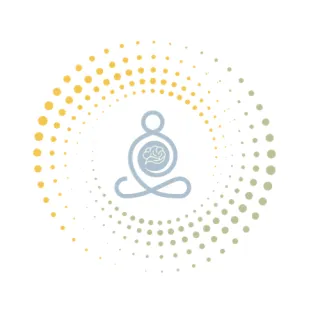
Do I need to be a professional singer to benefit from this?
Not at all. This practice is designed for anyone seeking greater ease and connection with their voice—whether you perform publicly, or simply express yourself with your friends. If you’ve ever felt blocked, anxious, or disconnected when using your voice, this approach is for you. Everyone has their own daily “stage,” whether it’s pursuing personal goals, navigating professional spaces, parenting, or re-parenting ourselves. This method empowers you to use your voice as a tool for presence, agency, and authentic expression—adapted to help you face your unique stage.

How is this different from traditional voice lessons?
Traditional voice lessons often focus mainly on technique. Embodied Vocal Wellness, however, centers on what’s happening inside your body—helping you feel safe, grounded, and fully expressive so your technique can truly thrive. It addresses the nervous system aspect that most training overlooks.
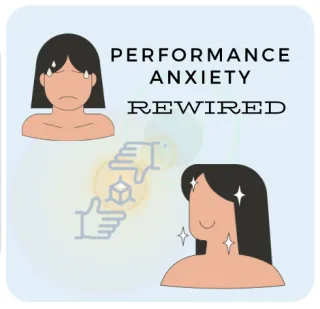
What does vocal toning and the vagus nerve have to do with my performance anxiety?
Vocal toning is the practice of holding simple vowel sounds to create gentle vibrations in your voice and body. These vibrations activate the vagus nerve, a key part of your parasympathetic nervous system, which helps calm your nervous system and reduce stress.
The Vagus Nerve is your body’s communication superhighway. It links the brain to key systems—including the voice, breath, heart, and digestion— playing a central role in regulating emotional and physiological states.
By modulating breath and sound vibrations, vocal toning can influence heart rate variability and nervous system balance. When the vagus nerve is disrupted by stress or trauma, your voice may feel tight, shaky, or blocked. But when the vagus nerve is regulated, your voice flows more freely, and confidence naturally follows. This practice is beginning to be used therapeutically to support trauma recovery, improve vagal tone, and facilitate somatic regulation against daily stressors.
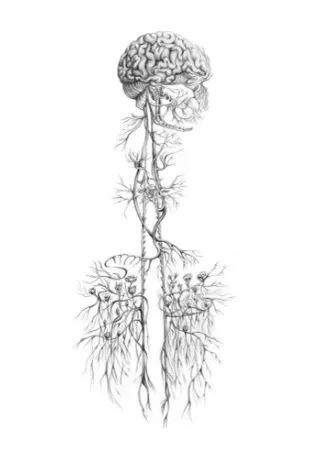
What are the physiological (body) and psychological (mind) benefits?
Notice how your breath naturally slows and deepens when stress hits, helping you stay calm in tough moments.
Feel your voice become stronger and more grounded, so you speak with confidence whether it’s a meeting, a conversation, or just sharing your story.
Experience less tension in your body and throat, making it easier to relax and fully enjoy your voice. Boost your energy and stamina so you don’t feel wiped out after a long day.
Sleep more soundly thanks to natural shifts in hormones that help you rest deeply.
Feel happier and more balanced, with mood lifts that come from your body releasing its own natural feel-good chemicals.
Handle daily stress better, with a nervous system that’s more resilient and ready for whatever life throws at you.
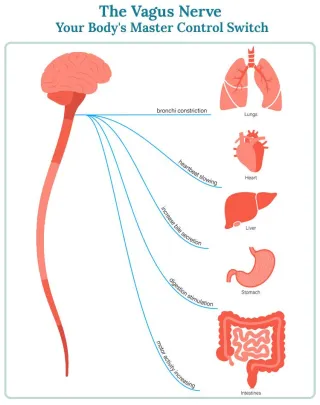
Can I work with you directly?
Yes! I offer workshops, private sessions, and online programs.
Stay tuned and sign up for my newsletter to be the first to know when doors open!

by Natasha Valdes
CEO of Embodied Vocal Wellness
Behind The Scenes Look:
The Embodied Vocal Wellness Workbook
Your companion guide to exploring complex feelings, letting go of fear, and trusting yourself more.
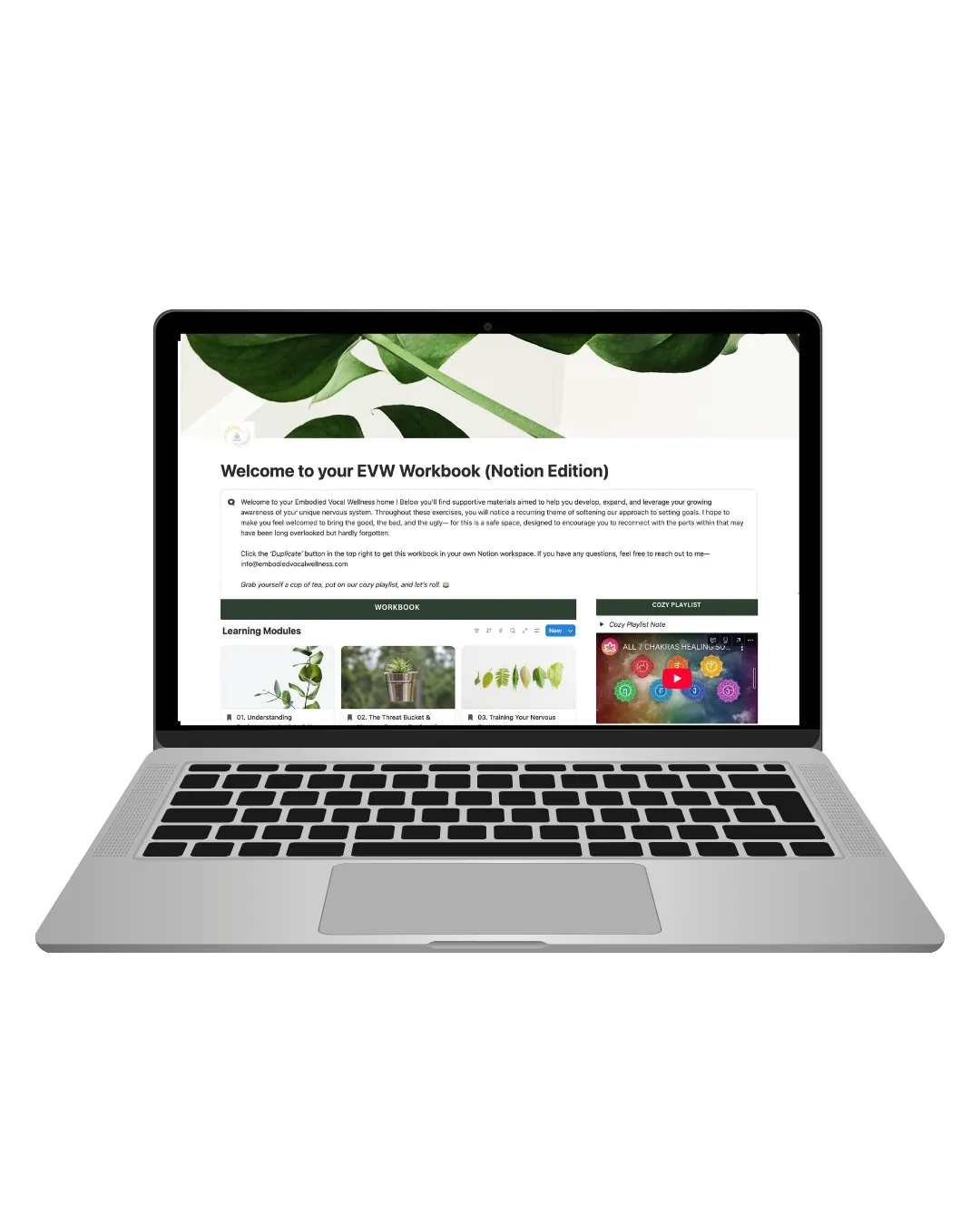



Expand Your Knowledge. Expand Your Voice. Expand your life.
Tune into all the interconnected parts of your mind, body, and voice
Learning that fits your needs
VIRTUAL OR IN-PERSON SESSIONS

Meet Natasha Valdes' Voice Studio
Home of the Embodied Vocal Wellness Practice; by a Certified Trauma Informed Voice Specialist, Neuro Vocal Somatic Practitioner, Science-Based Voice Teacher, & Performance Anxiety Coach
Contact Me
Email:
info@embodiedvocalwellness.com
Location:
Anaheim, CA
Phone Number:
714-926-3028
